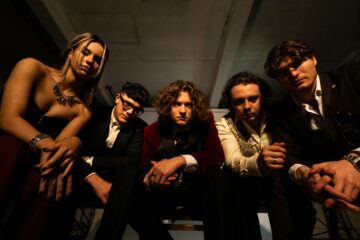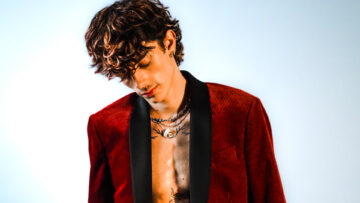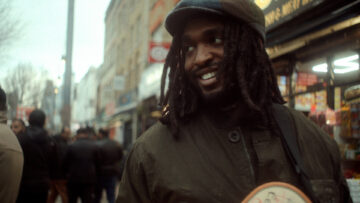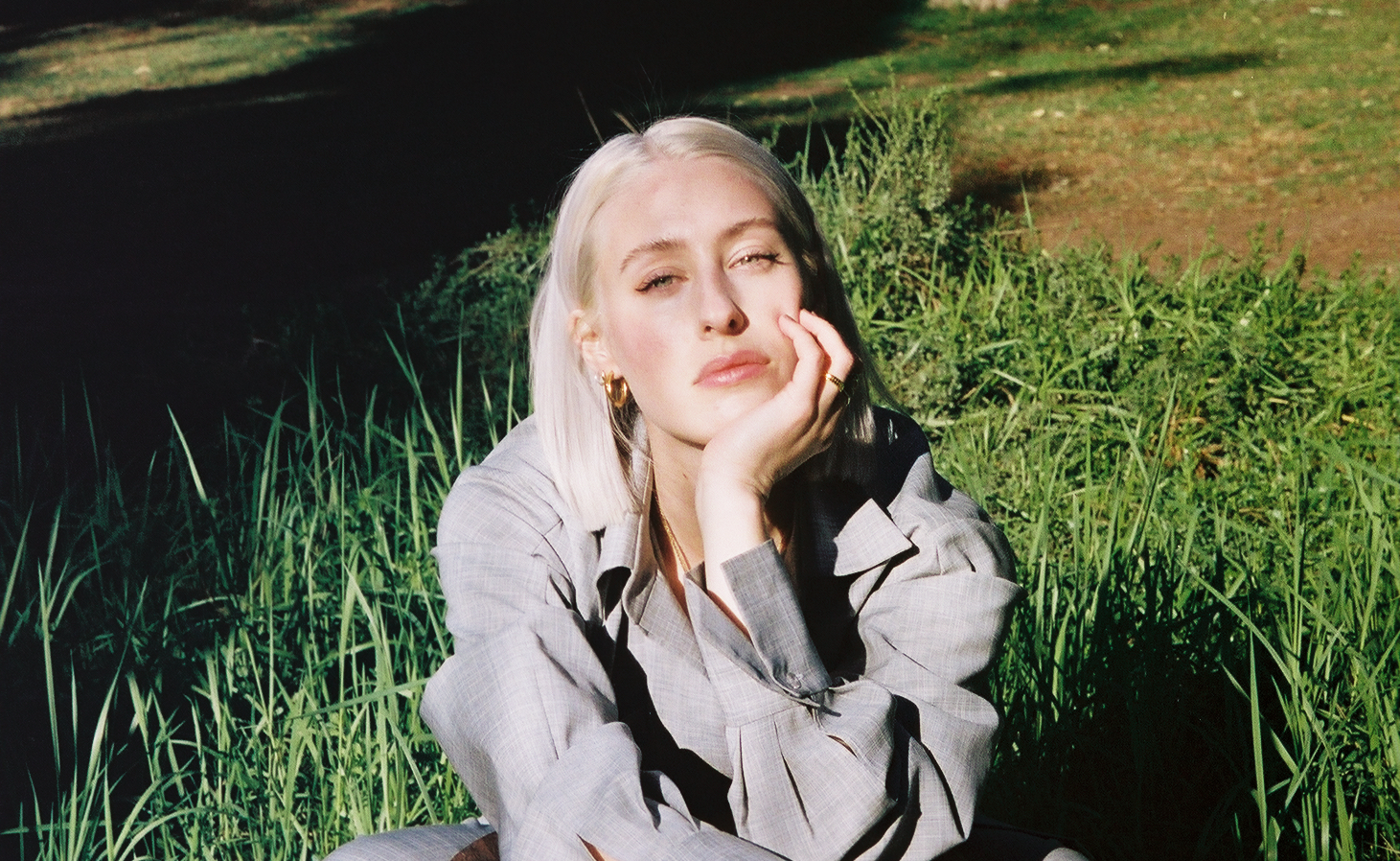
Violet Skies’ debut album, If I Ever Saw You Again, arrived last week. She talks to Archie Brydon about writing for other artists, establishing her own voice, and her personal and professional growth over the last decade.
“The shortest version of this story is I’ve had lots of stops and starts in my career,” explains Violet Skies. “Music is full of rejections and I think as someone who’s a perfectionist, and wants to succeed and wants to be successful in what I do, I’ve realised you can’t win music. You can get full marks on a paper, but you can’t win music. It’s so subjective. Even in the charts, someone’s number one and then the next week someone else is. Everybody’s winning. Once you realise that, music doesn’t feel so scary.”
Debut albums have the ability to mark both a beginning and an end. Obviously, with a debut, it’s not the end, but for artists whose journeys to that first record have been winding and often arduous, getting to this stage is worth celebrating. It’s a culmination of years’ worth of work and, in the case of Violet Skies, the realisation of a lifelong dream, made all the sweeter by the resilience it’s taken to get here.
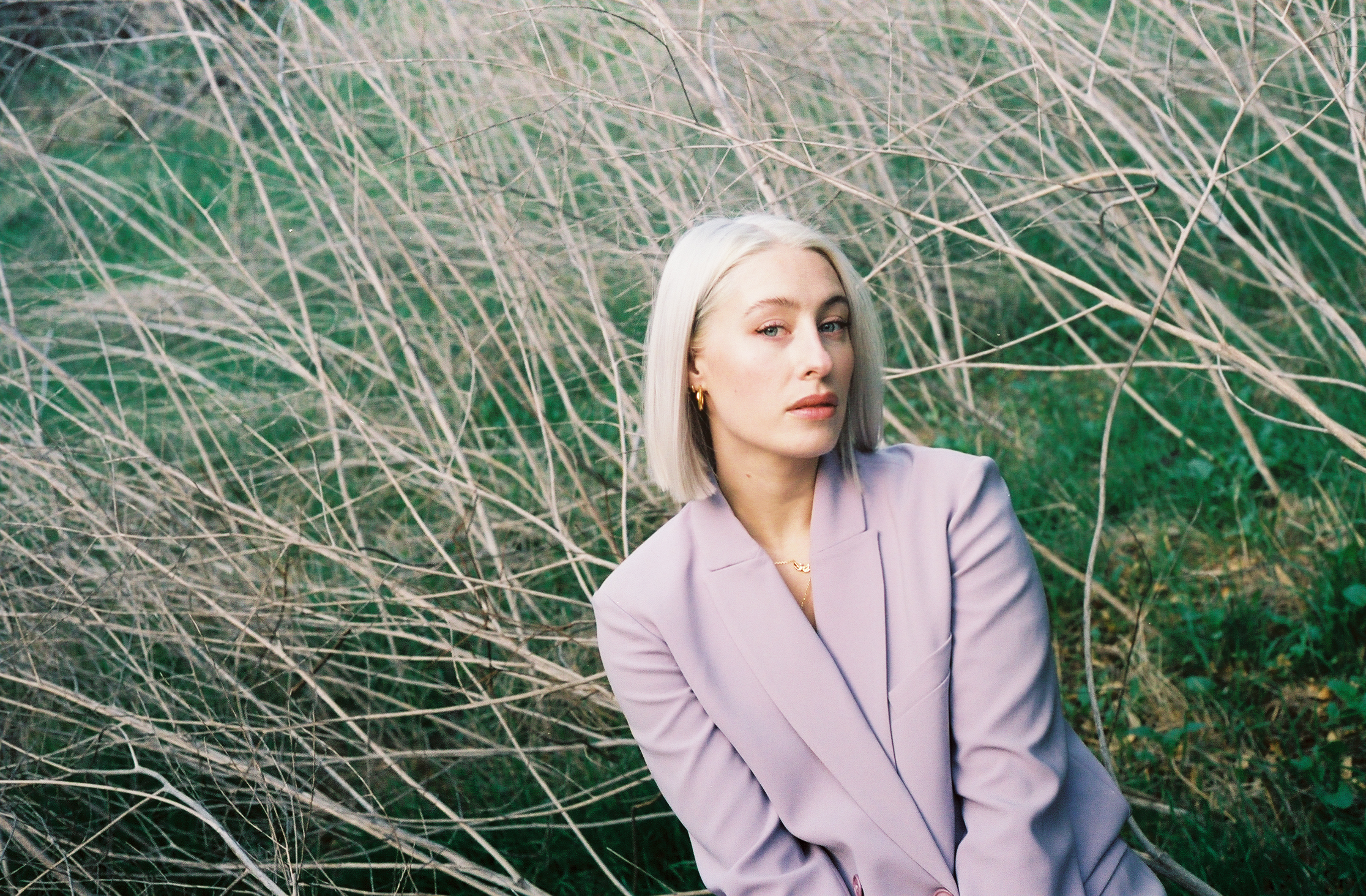
“I held the vinyl the other day,” she smiles. “It’s mad. Releasing EPs on streaming has been so cool, but I’d say there’s an element of it not feeling tangible. This album has been a long time coming, in many different ways.”
Most of the songs on If I Ever Saw You Again have been written for years, and it was a case of holding onto them until she had a complete record, as well as the time to bring them all together. In total, Skies had 15 or 16 songs she considered putting on the album, before whittling them down to ten tracks that she’s “100 per cent happy with”.
“I suppose Covid gave me the time. I was able to sit down with Greta Isaac, my creative director and incredibly good friend, and say, ‘I want to create a world around this album.’ I’ve never had time to do that before and I had a really clear sense of what I wanted.”
The bulk of the recording took place in Los Angeles. Skies signed a publishing deal with Kobalt, whose A&R was based in California, and she left home to go and record just before the pandemic. In the initial confusion over how long travel restrictions would last and the inability to return to America if she left, Skies stayed in the US for months. She finally got home towards the end of 2020, and from that stage onward was able to travel with relative ease across the Atlantic.
“I was really lucky with my visa and paperwork, and the kind of work I do meant I was able to go back and forth. I recorded the final vocals at my parents house in Wales, in the bedroom, under a blanket, at 3am. I recorded a lot of the other stuff in LA.”
After appearing on the first season of The Voice UK, and then on the BBC Introducing stage at Glastonbury in 2014, success seemed to come swiftly for Skies, who was only just out of university. “It was a bit of a trial by fire,” she reveals, explaining the questionable managers around her at the time, and how beginning to write for other artists helped her eventually reach the point she’s at now.
“In a gap where I had no management, I ended up in Berlin and had… I wouldn’t say a breakdown,” she laughs, “but basically I left London. I had some shows in Germany and whilst I was there, my agents were like, ‘Hey, Sony want to meet you.’ So I went in to speak to Sony and played them a bunch of songs, and some of these were just not for me, but I didn’t really know what to do with them, or what I was supposed to do with songs that weren’t for me. And they asked me to stay a week and booked all these sessions for me.
“I was writing for other people and [the songs] were landing. It was super. It wasn’t something I planned, but in the midst of not having management and not really knowing what I was doing with my own artistry, I wrote for other people. It was a strange time in my life, around 2017 or 2018, and I spent a lot of time in Berlin and Stockholm. It was just a year of putting myself out there in a way I’d have never done before. Probably stupid when I look back at it now, completely lawless, but it was fun.”
Skies’ songwriting credits now include Mabel and Tiësto’s ‘God Is A Dancer’, LÉON’s ‘You and I’, and Diana Ross’ ‘I Still Believe’.
“About the same time I started writing for people and I cut all my hair off. I remember looking at myself and being like, ‘Oh, this is a fully formed version of who I am.’ Some people find who they are really early, and I think, bizarrely, I’m now closer to who I am at 16 or 17.”
Aged 16 or 17, Skies was yet to appear on The Voice. “I don’t talk about it much,” she admits. “Because if I’m super honest, it was probably one of the worst times in my life. I was at university and not really planning on doing music. I didn’t even audition. It was the first ever series and I didn’t know what it was. I turned up to a gig and afterwards the people who put the show on were like: ‘actually, that was an audition. There were scouts in the audience and they wanted you to do [The Voice].’
“And look – it’s a TV show. It’s the same story as everybody who’s ever been on TV: I was portrayed incredibly differently to who I am and very much who I wasn’t. I was a 19-year-old university student who did a bit of cheerleading and they were just obsessed with me being a cheerleader. I was made to sing songs I didn’t want to sing. They put me in outfits I didn’t want to be put in. Looking back on it now, I felt incredibly objectified – I had no sense of independence or individuality.
“They were obsessed with putting me in pink and tutus, because I was this ‘cheerleader.’ It was a fight every single time. Eventually, I put my foot down in one of the live shows and said, ‘Guys, I can’t wear this. I can’t sing this.’ The producers were upset. I was already aware I was going home.
“Afterwards, I quit university, left those managers and was like, ‘right, what works?’ It’s such a small part of my journey, and it did help me find what it was to be Violet Skies.”
Skies is keen to acknowledge for all the personal growth that has come with age, there are other factors that also help an album materialise. “There’s a bigger budget,” she laughs. “Usually, I wouldn’t flag this, but for anyone or any other artist reading this, when people talk about growth, they’re not just talking about creative growth. I have a bigger budget and that makes a big difference.
“Trying to see visions through, this the first time I’ve made multiple music videos for any project. They’re small – tiny budgets with a tiny team, but still bigger than where I was. I think it’s just a case of having someone who can reflect your vision back to you and say, ‘Is this what you meant?’ Now I can say, ‘Yes.’”

